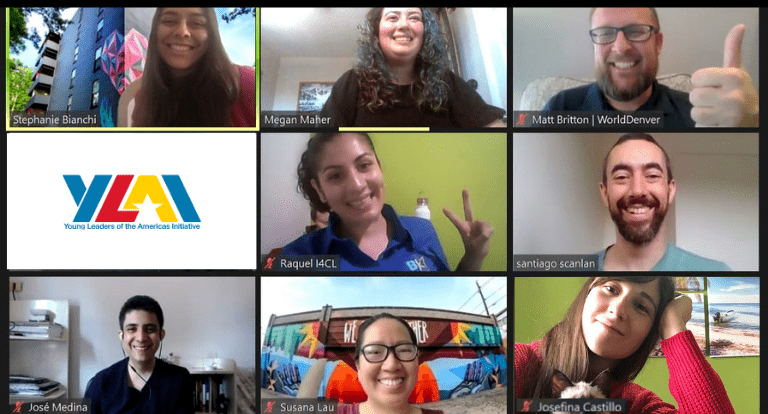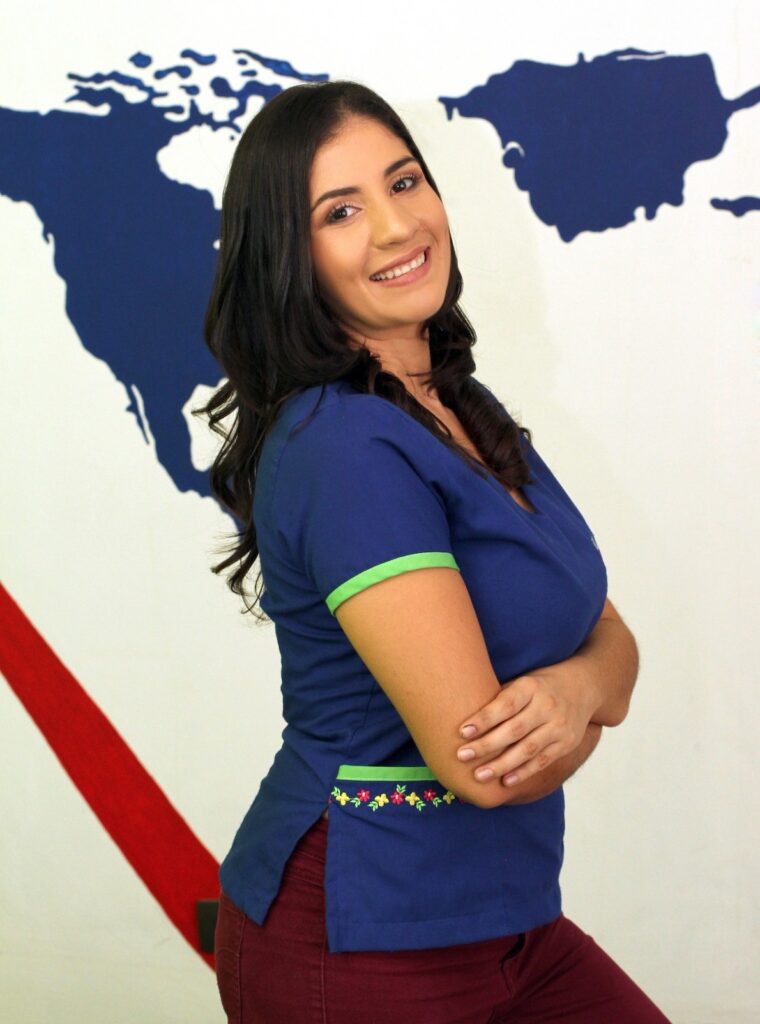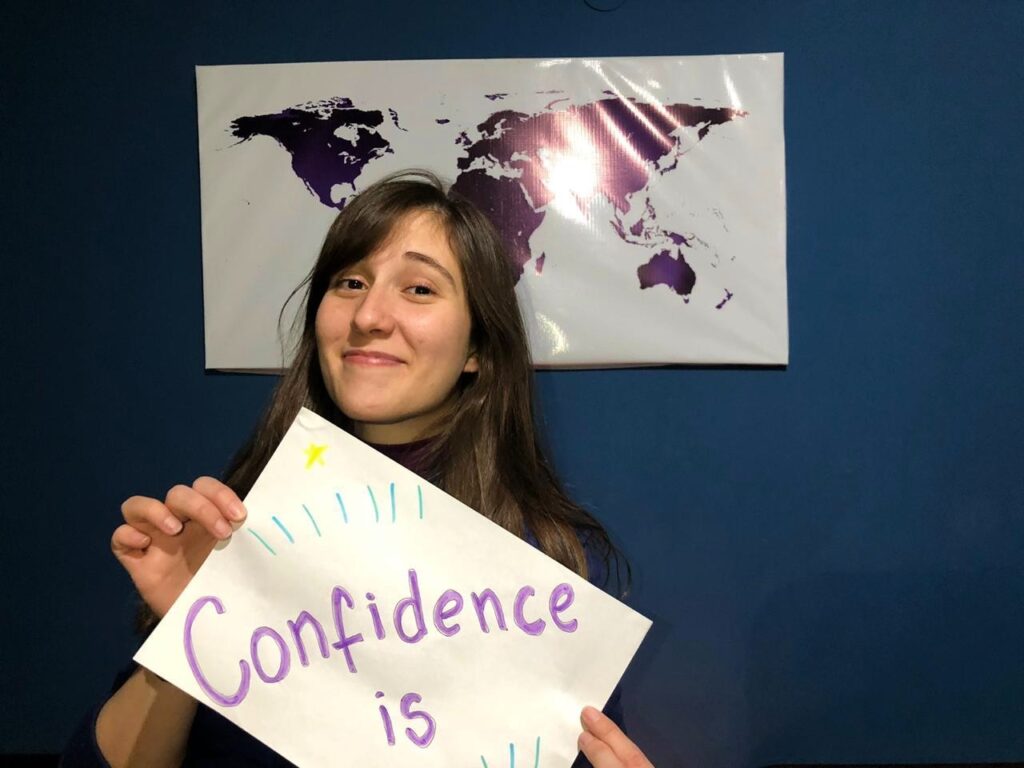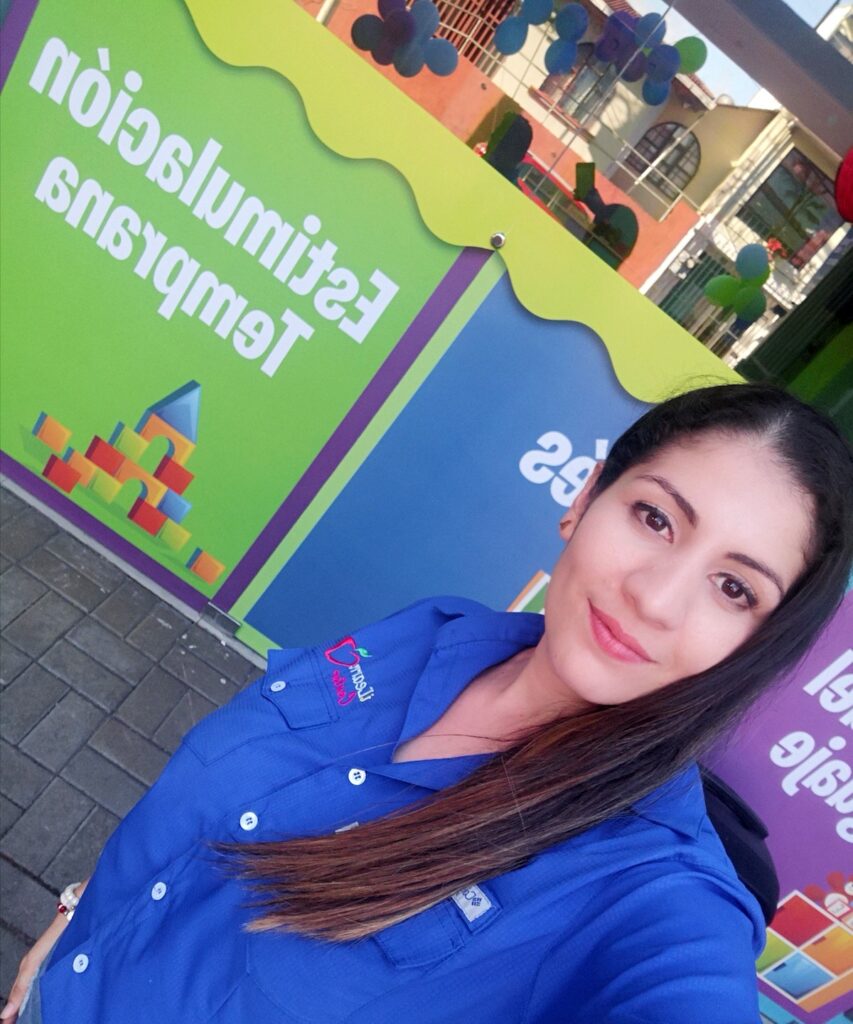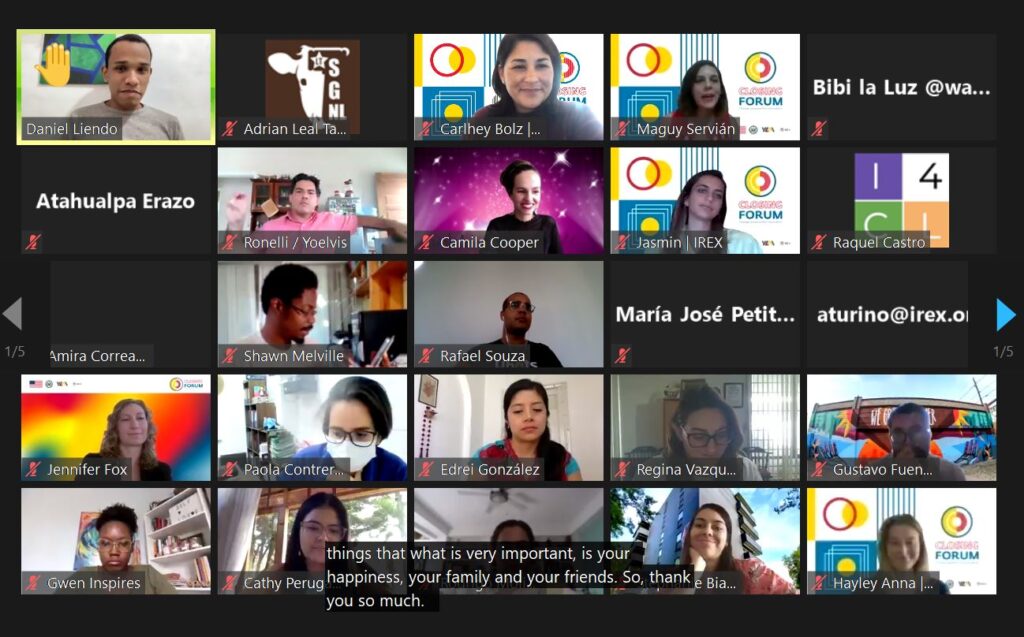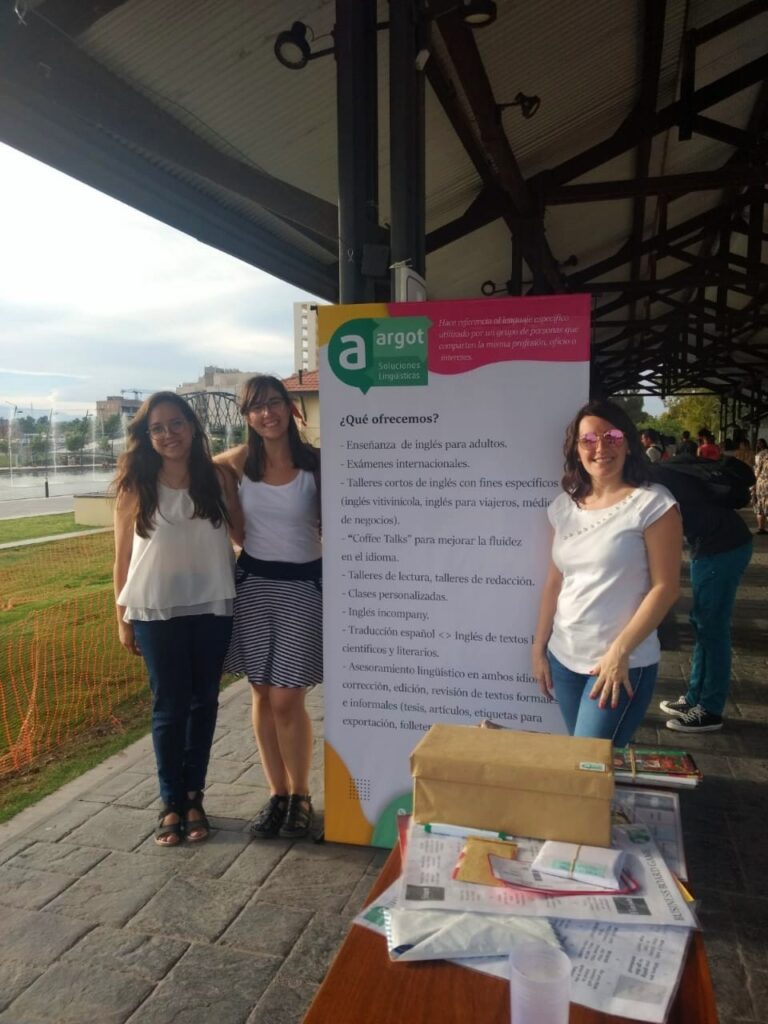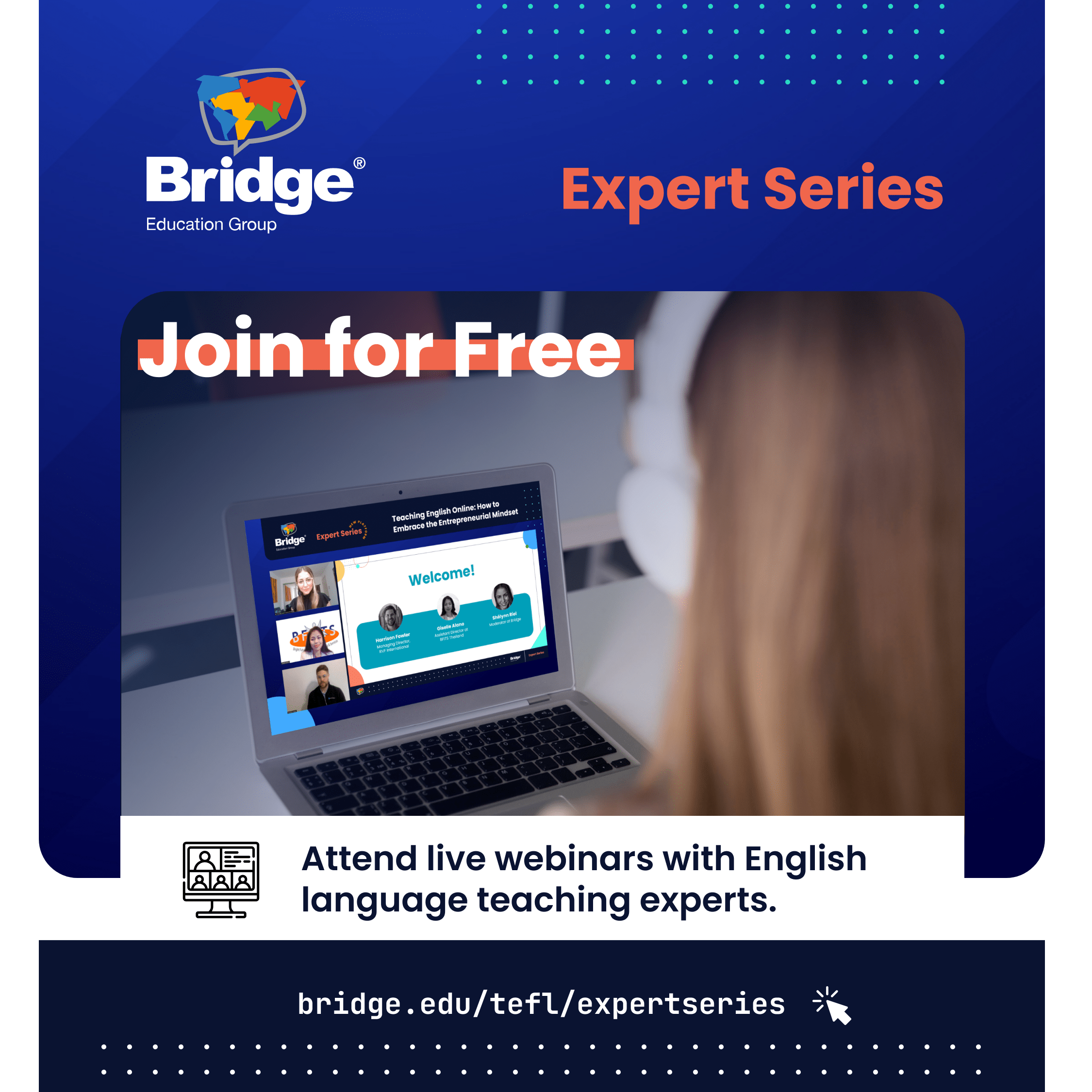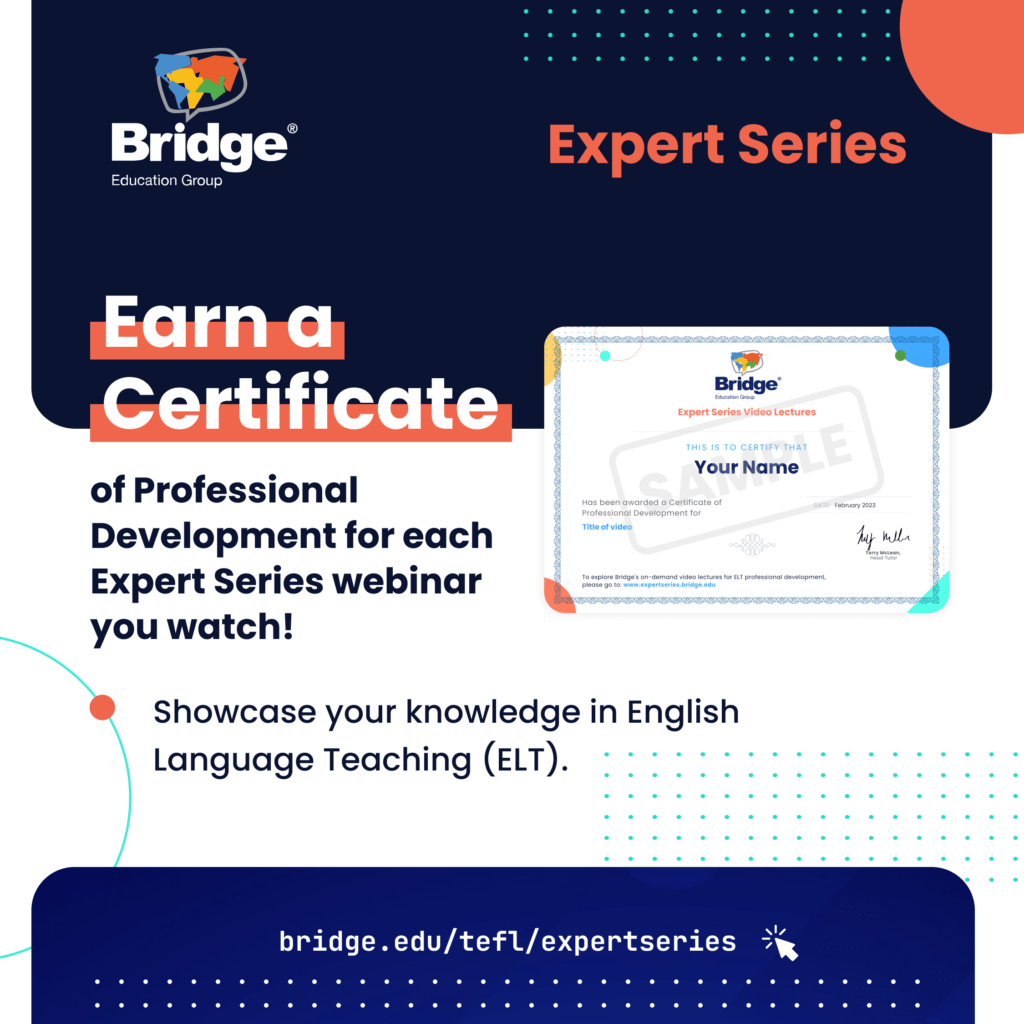Although cliché, there’s a Roman proverb that still rings true with many thriving entrepreneurs: “Luck happens when preparation meets opportunity.”
Raquel Castro knows that feeling entirely. At 10-years-old, she acquired a strong desire to speak English. Her mother was a food preparer at the local language school and Castro was, by default, introduced to the world of academia. Students from all over the world arrived in her Costa Rican town eager to read, write, and speak English. Without much outside influence, Castro was destined to master the new language and eventually become an academic entrepreneur in the English language teaching (ELT) industry.
Sometime in 2019, Castro was casually scrolling on Facebook when she clicked on an ad for the Young Leaders of the Americas Initiative. YLAI, as it’s often abbreviated, is a fairly new but growing-popular fellowship program hosted by the U.S. Department of State.
“To be honest, when I first saw the YLAI information… I wasn’t thinking I needed this,” Castro admitted.
As she skimmed the ad, what caught Raquel’s attention was the emphasis on entrepreneurs. Feeling like she had hit a wall in expanding her two small businesses, Castro decided to take a chance and apply for the YLAI fellowship program. What did she have to lose?
Since that fateful decision in 2019, Castro has embarked on a new journey with Bridge, ultimately gaining more clarity on how to grow her brand and scale her emerging ELT businesses.
Castro was not alone in her journey; Josefina Castillo, from Argentina, was also accepted at Bridge as part of the YLAI fellowship’s spring 2021 cohort. Castillo is exactly the kind of Fellow that Bridge envisioned. She speaks three languages: English, Spanish, and German, and is also the co-founder and coordinator of Argot Linguistic Solutions a business offering language instruction, cultural training, and translation and interpretation services. She’s eager to grow and effectively lead her company to the next chapter.
The two women entrepreneurs have now both concluded their programs and will be applying what they’ve learned at Bridge to enhance their own ELT-focused businesses.
Young Leaders Make Future Innovators
It began with an email from IREX, a non-profit based in Washington, D.C. that works closely with the State Department, that catapulted the YLAI Fellowship program into view for Castillo, Castro, and Bridge. The program was established in 2015 by the U.S. State Department with the purpose to promote, “mutual understanding and build a network of young business and social entrepreneurs.”
In short, the YLAI Fellowship program can be described as an annual exchange program that accepts 280 young business and social entrepreneurs from 37 countries across Latin America, the Caribbean, and Canada. These YLAI Fellows are matched and assigned to businesses and organizations across the U.S. to gain entrepreneurial leadership training, build new skills, share best practices, and forge commercial ties.
“YLAI is similar to some of the other ‘Y’ programs at the State Department which really focuses on leadership and development of individuals across the globe,” said Megan Smith, the program director for YLAI at IREX. “YLAI particularly emphasizes entrepreneurial leadership with some of the best and brightest leaders in the Americas.”
In short, the YLAI Fellowship program can be described as an annual exchange program that accepts 280 young business and social entrepreneurs from 37 countries across Latin America, the Caribbean, and Canada.
The program can be viewed as an extension of American diplomacy, in which the U.S. sponsors and hosts foreign nationals to strengthen their capacity to launch and advance their entrepreneurial ideas. In turn, Fellows return home with new knowledge and skills to cultivate social and economic development in their communities.
Of roughly 750 applicants selected for initial YLAI vetting, only 250 finalists were selected, matched, and placed with an American company, including Castillo and Castro. IREX and the State Department vet applicants on a variety of criteria. The main two criteria are that the applicants must be 25 to 35 years of age and have a proven track record of at least two years’ experience with either small- or medium-sized businesses or social ventures.
Apart from the baseline requirements, both agencies look for candidates who are breaking ground in their communities. According to Smith, diversity, equity, and inclusion are core values that both IREX and the State Department strive for, and this was their focus long before the movement for more professional representation of such values became the new standard.
“When we are recruiting and selecting Fellows, we look for the people who are from rural areas, marginalized communities, and ethnic minority groups,” said Smith. “We’re constantly asking, ‘How can we go further than just representation? How can we promote experts with different voices? How are Fellows being welcomed into the program?’”
In an era in which women still lag behind men in terms of financial, political, and social equity, Castillo and Castro are part of the 36% of women globally who own small businesses. Against the background of the pandemic, in which 49% of women-led businesses were financially impacted, the voices of Castillo and Castro were of great value not only to the YLAI program but also to the Bridge team.
Bridge was enlightened with powerful insights from both women’s personal experiences as English language teachers and as business owners, which also shaped their skills development.
Bridge was happy to work with both women from Latin America, a region which is “near and dear” to the company because of its roots there as well as due to the now-expanded network of Bridge graduates who are teaching English across the region. Karyssa Cox, the Director of Marketing Operations at Bridge, says that Bridge was enlightened with powerful insights from both women’s personal experiences as English language teachers and as business owners, which also shaped their skills development.
On Castro and Castillo, Cox said that “we found we shared similar mindsets and they really ‘got it’ when it came to our company culture and our mission of empowering global English teachers.”
Working Remotely Across the Americas
Castillo and Castro were originally scheduled to travel to the U.S. in the summer of 2020 to complete their four-week Fellowships. Had the program been completed normally, each Fellow would have resided in the city of their host company and furthermore been matched with a mentor in that city. Smith from IREX recalled that flights were booked and J-1 visas were issued.
However, the COVID-19 pandemic changed everything. At the peak of infection surges, international travel was heavily discouraged and American corporate workspaces were forced to make the transition to a work-from-home model to accommodate social distancing recommendations.
As summer graduated to fall, it became more obvious that Castillo and Castro, along with their cohort, would not be traveling to the U.S. after all. Alas, the summer 2020 cohort was delayed until winter and spring 2021 and would be completely virtual. A virtual Fellowship was not what Smith had imagined for the Fellows, noting that the magic of meeting someone in person and sharing experiences face-to-face is unmatched, particularly for the YLAI exchange program.
By the time she received the news from IREX and the State Department that the program would be virtual, Castro had already been hit with Zoom fatigue from transitioning her school’s ESL classes online.
“When I got the news, I thought, ‘this is going to be another online program!’” Castro said with exhaustion. She was understandably disappointed that she wouldn’t be boarding a plane to Denver after waiting for nearly a year. “Of course, I miss the face-to-face part because I love talking to people and making connections. I miss talking to neighbors.”
Surprisingly, the virtual programming turned out to be for the best. Castro acknowledges that she’s a woman with a packed schedule: she runs two businesses, ILearn Center and Brainy Kids, and trains teachers daily, all while wearing many other hats to support her businesses. What she needed most was flexibility, which the new virtual setting provided.
Since YLAI went virtual for the first time in 2021, the exchange program would look and feel completely different. What virtual programming did offer was flexible scheduling and the opportunity to extend participation. Each Fellow works with their host company to determine the number of hours the Fellow is able to commit each week in order to fulfill their four-week work requirement.
It’s a testament to the professionalism and can-do attitude of both the Bridge team and the Fellows that we had a successful and positive experience, despite the challenges of the remote format.
“I’m really grateful for the support I received at Bridge,” Castro said. “I’ve been busy all my life, so I appreciated the flexible schedule. It did not matter that I worked late at night or early in the morning.”
Cox, who oversaw the progress of the two Fellows, agrees that despite a shift in work culture, remote training did not undermine the expectations nor the level of engagement between the company and the Fellows.
“Despite the pandemic, we were able to make a strong connection and really enjoyed our experience!” Cox said. “It’s a testament to the professionalism and can-do attitude of both the Bridge team and the Fellows that we had a successful and positive experience, despite the challenges of the remote format.”
Marketing Matters
A common gripe among American employees, particularly those who work in corporate settings, is that overly scheduled meetings could simply be converted to email exchanges; an abundance of meetings is perceived as a waste of precious work time. Castillo disagrees, especially after working with Bridge for the past few months.
Cox acquainted the Fellows quickly by roping them directly into the Bridge marketing team norms and customs. Firstly, Castillo and Castro were onboarded to daily “team huddles” in which all team members clue one another in on their projects and thereby promote accountability. Castillo said she was enlightened by this custom and plans to regularly implement “check-in” meetings at Argot.
“One thing that I learned at Bridge that I’d not practiced before is that everyone should be aware of what each person is working on,” Castillo said.
Secondly, Cox assigned Castillo and Castro to several key marketing assignments and admissions projects. Within those projects, the women connected with several members of the Bridge team in different departments. Encouraged to ask questions, the YLAI Fellows sought advice and support on challenges they were facing in their own businesses. Both Castillo and Castro admitted that a huge pitfall in their current business models was strategic marketing.
By joining the marketing team, the women’s unrefined skills in the marketing department were sharpened with each assignment but, most importantly, they recognized they needed to identify their target audience by creating different personas for different audience groups, a proven model that Bridge revisits often.
Understanding these groups, Castillo said, will help her better communicate and engage with her own clientele. For Argot, this could expand business, not just through Facebook and YouTube, but through targeted email messaging for specific people. One of Castillo’s assignments was to pen an article for BridgeUniverse, Bridge’s online news magazine, focused on ELT freelancing. With this project, Castillo applied what she learned about marketing directly into practice: identifying an audience and crafting an engaging narrative to capture that audience.
“The YLAI program has taught me that there is something to learn in everything.”
On Castro’s end, since ILearn Center and Brainy Kids launched five years ago, she has grown her clientele from five students to 130. She plans to utilize all the appropriate marketing tools she’s now acquired at Bridge to scale both platforms.
“At Bridge, I learned exactly when and where certain messages and social media posts should go out, and who I’m speaking to,” Castro said.
Castillo and Castro agree that being the face of their companies is a juggling game; they wear many hats. They both are the spokesperson, the accountant, the lead trainer, and the marketing department, and the list goes on. Both started out as educators, so learning multiple industries at once is challenging but necessary for the survival of their businesses. Castillo says that the YLAI Fellowship program has opened her eyes, saying that learning new skills such as marketing is attainable with a can-do attitude.
“The YLAI program has taught me that there is something to learn in everything,” Castillo said.
New Attitudes for the Future
For the first time ever, Josefina Castillo can claim a new title: published author. Although the YLAI Fellowship has concluded, Castillo is extending her participation at Bridge until her final project is completed: an eBook about becoming a freelance ESL “teacherpreneur,” to which she contributed.
“At Bridge, I felt all the doors opened for me,” Castillo said, reflecting on her Fellowship. “Bridge is confident in what they do, they are very honest and open, and they helped me see that I can accomplish things.”
Both Castillo and Castro graduated from the Fellowship program with new goals and more clarity, but most of all, a reenergized spirit.
“A strong entrepreneurial spirit is at the core of our business, and we truly believe in the program’s goal of supporting budding entrepreneurs as they strive to make a difference in their communities,” Cox said. “We were very impressed with them. They brought excellent ideas to the table, were incredibly well-organized and hard-working, and they showed a great amount of diligence.”





